On Sunday, (May 25, 2025) Bangladesh witnessed an extraordinary convergence of discontent, with multiple sectors staging protests that effectively paralyzed large parts of the country’s administrative, economic, and civic machinery.
From Dhaka’s administrative blocks to Chattogram’s port terminals, voices of frustration echoed across the nation—each protest rooted in unique grievances, but unified by a shared sense of marginalization and urgency.
Work Stoppage at NBR
The day began with the gates of the National Board of Revenue (NBR) in Dhaka firmly shut. Officials and staff rallied outside, continuing their protest against a government ordinance that seeks to restructure the NBR by dissolving it into two new departments. Holding placards and chanting slogans, tax and customs officials under the NBR Reform Unity Council announced a full-day work stoppage, effectively freezing revenue-related activities. This marks a continuation of escalating tensions since the ordinance was issued earlier this month.
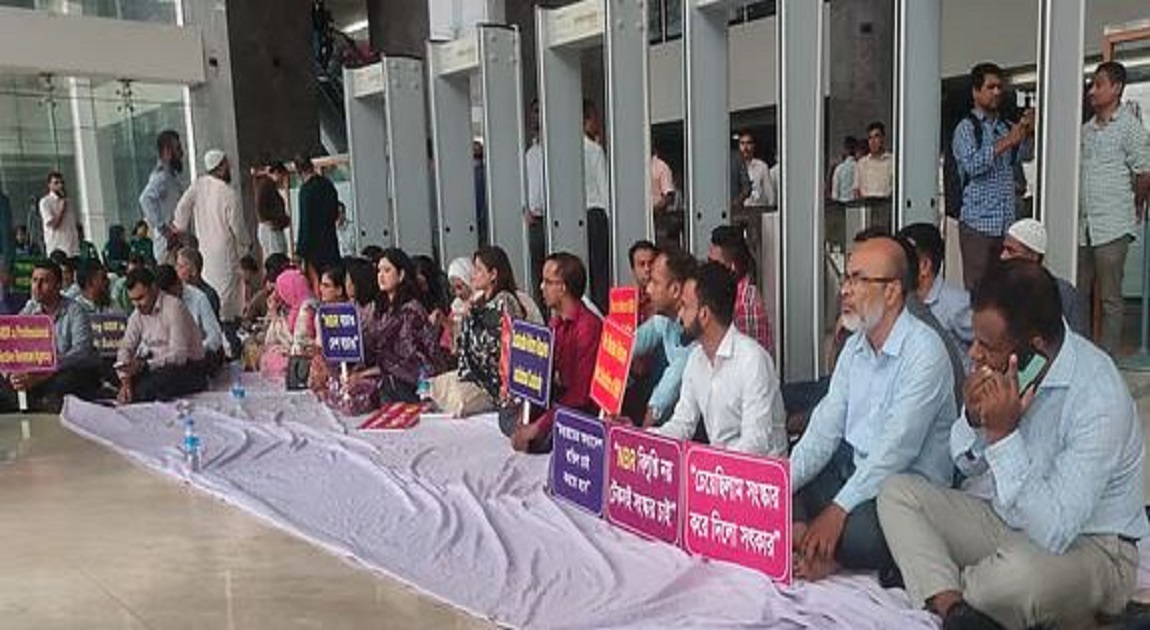
Simultaneously, in Chattogram, the nation’s busiest port ground to a halt as the local Customs House joined the strike. Import and export clearances were suspended, stoking fears of supply chain disruptions just ahead of the upcoming Eid festival. “We are not against reform, but this has been forced without consultation,” said a customs officer on-site. “This affects the future of thousands of professionals like us.”
Petrol Pump Closed pressing 10-point Demand
Meanwhile, in a parallel development, petrol pumps across Dhaka and other regions downed their shutters in an eight-hour strike. The owners` association demanded a minimum commission of 7% on fuel sales and objected to mounting regulatory fees and logistical barriers.
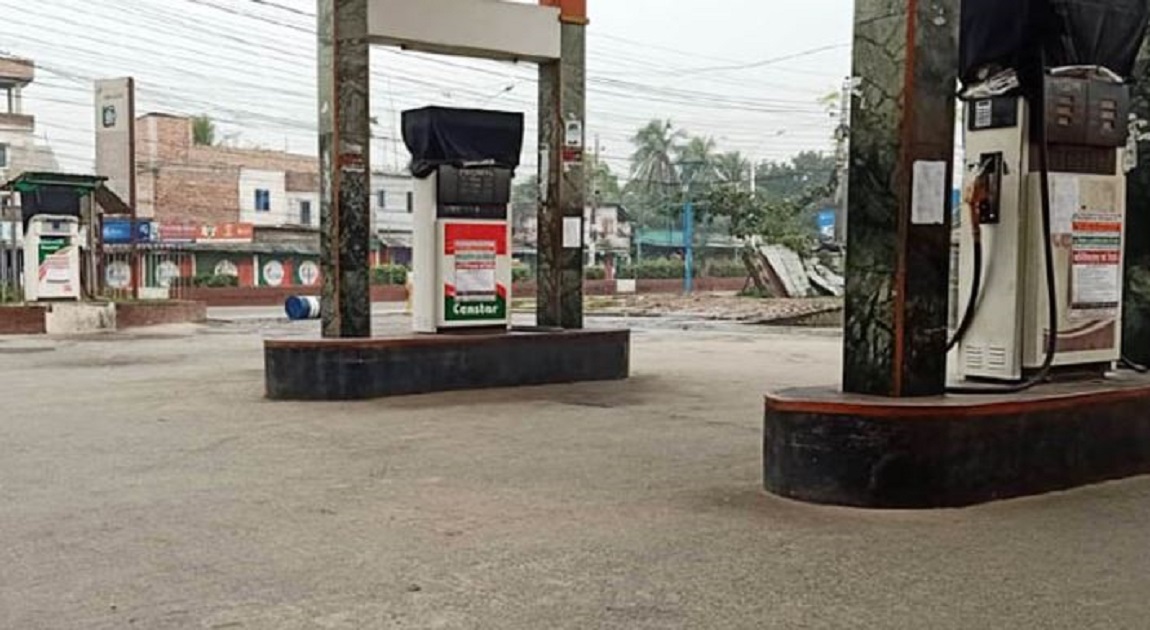
Emergency services—such as ambulances, fire services, and police—were exempt, but ordinary citizens faced significant challenges refueling their vehicles.
Nagar Bhaban
The ripple of unrest extended into the heart of city governance. At Nagar Bhaban, the office of the Dhaka South City Corporation, operations remained suspended for the ninth consecutive day.
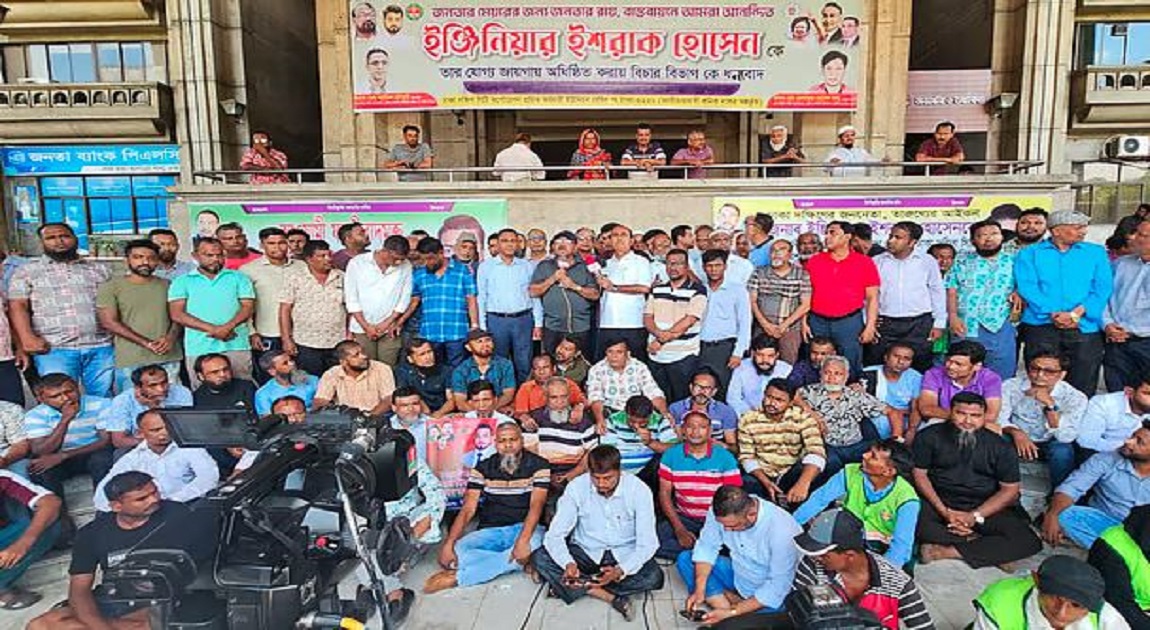
The protestors, comprising city staff and political supporters, are demanding the immediate swearing-in of Ishraque Hossain as mayor, following a disputed election result. With locked gates and absent officials, municipal services are at a standstill, adding further strain to the urban populace.
Unrest at Secretariat
Just a few blocks away, another protest is underway at the Bangladesh Secretariat, the nerve center of national governance. Hundreds of government employees are staging a sit-in, blocking several entry points to press home their demand for a revision of the proposed new administrative cadre rules.
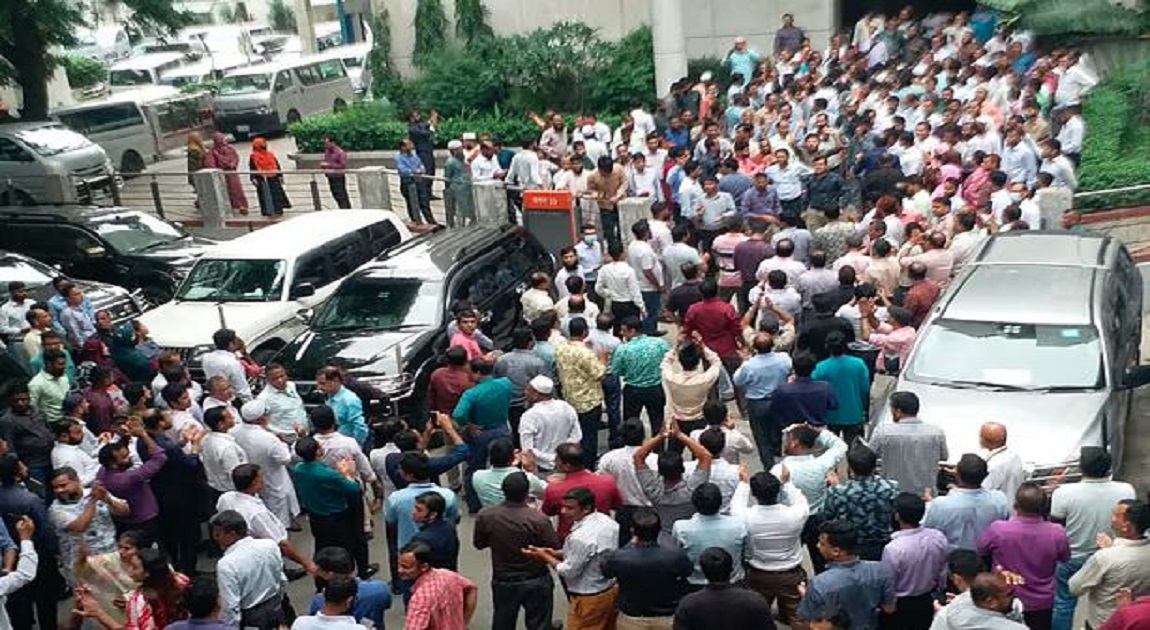
They argue that the new structure threatens career progression, reduces field-level authority, and centralizes control in a way that undermines decentralized governance. Civil servants chanted slogans for transparency and fairness, urging the Cabinet Division to open talks immediately.
University Protest
In the academic sphere, the student movement continued to gain traction. Under the banner of Bangladesh Ganatantrik Chhatra Sangsad, students staged a sit-in at Dhaka University demanding justice for Shammo, campus safety, and an immediate DUCSU election schedule. University authorities held a meeting with student leaders and assured steps: regular updates on the murder investigation, improved campus security, and formation of the election commission before Eid. Meanwhile, three student activists, including Bin Yamin Molla, ended their 81-hour hunger strike after receiving similar assurances. Though tensions briefly flared during the protest, organizers later confirmed it stemmed from a communication gap, and students remained cautiously hopeful about the administration’s commitments.
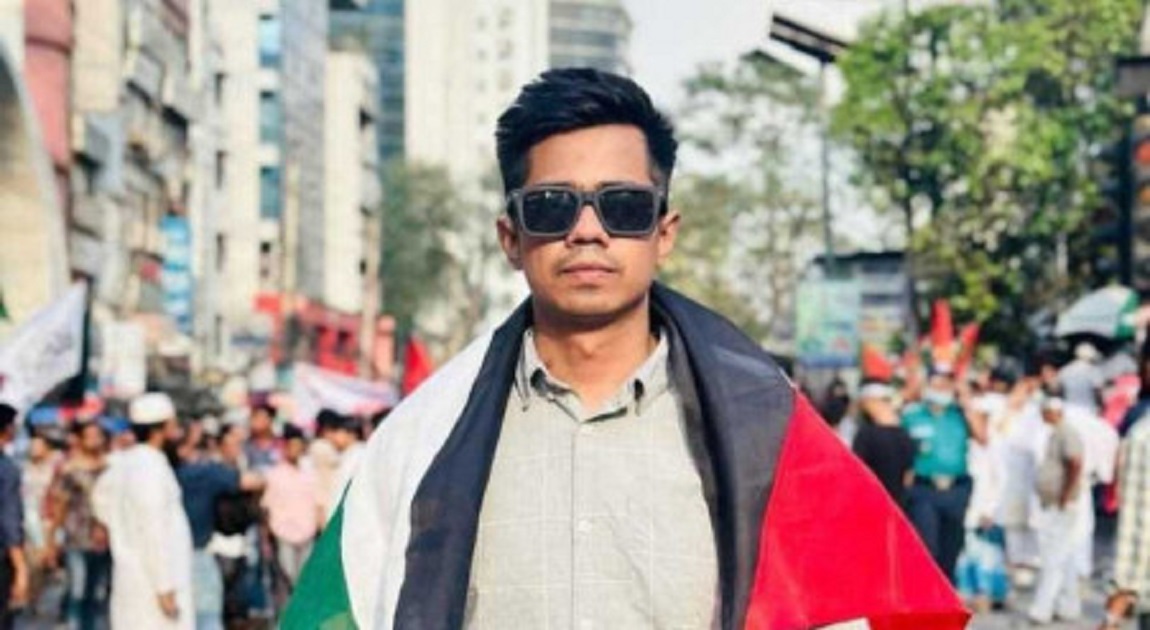
Protest at Chattogram Port
Adding to the complex tableau of unrest, port workers aligned with the Jatiyatabadi Sramik Dal launched a week-long protest against the leasing of the New Mooring Container Terminal to foreign operators. Their concern lies in potential job losses and what they call “the erosion of national sovereignty” over strategic infrastructure.
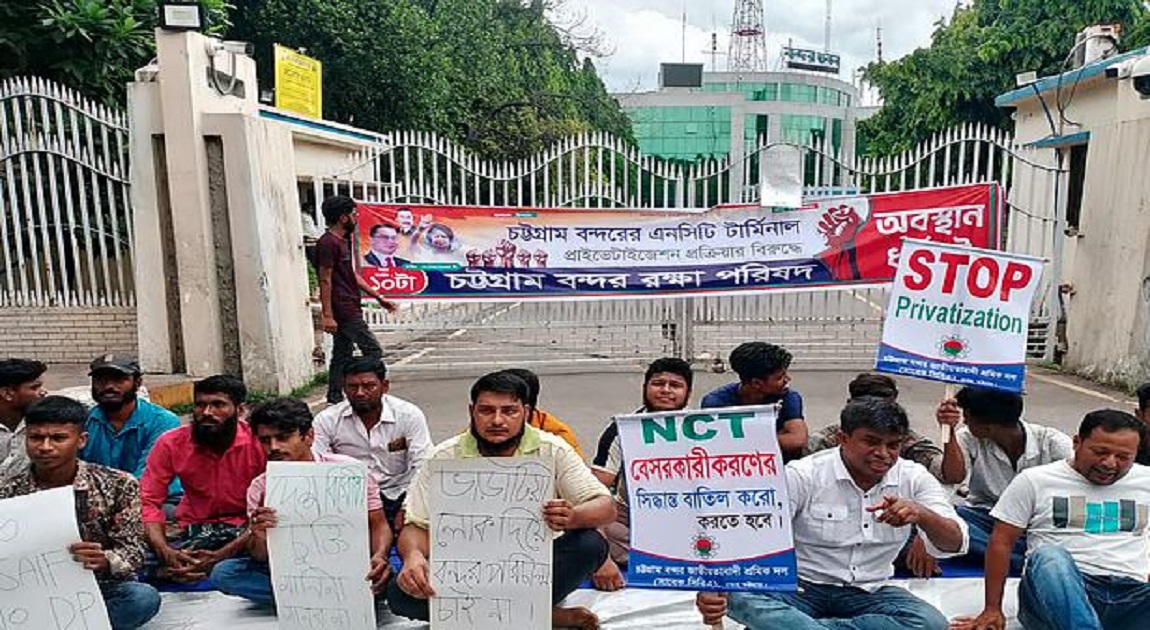
What makes this moment remarkable is not just the number of protests, but the diversity of actors involved—from civil servants and labor unions to students and city officials. While their grievances differ, their unified action has created a rare alignment across professional and political boundaries, posing a significant challenge to the government.
Whether this wave of protests will lead to constructive dialogue or deeper polarization remains to be seen. For now, Bangladesh stands at a critical crossroads—its streets loud with discontent and its institutions momentarily paused, waiting for a resolution.


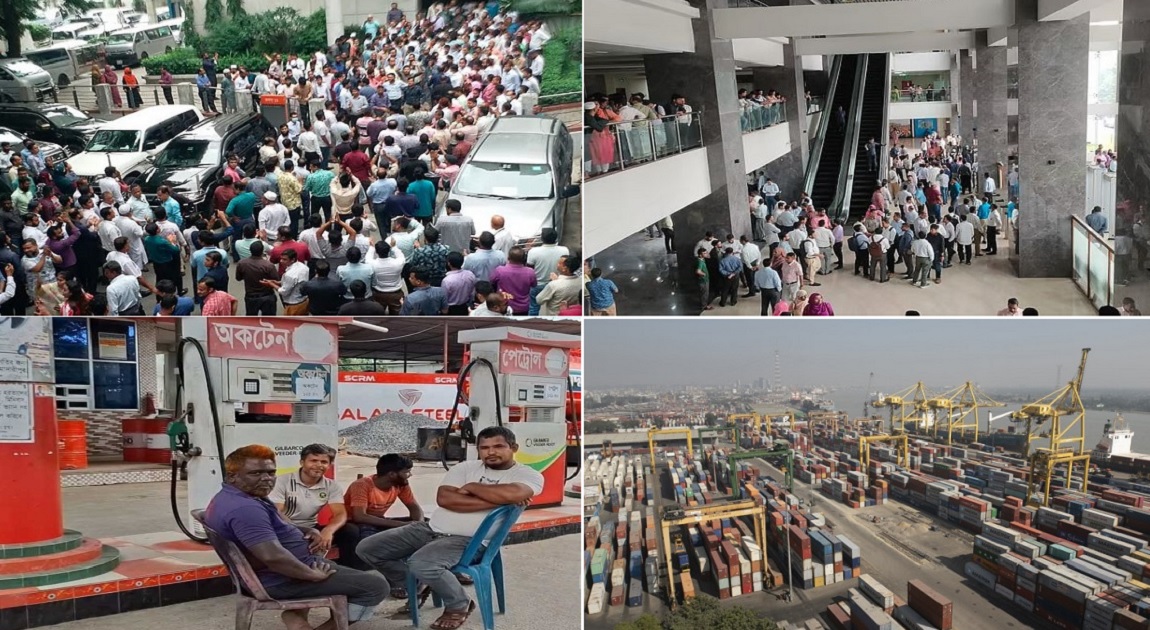

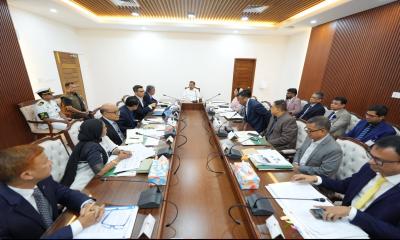









-20260222063838.webp)



















